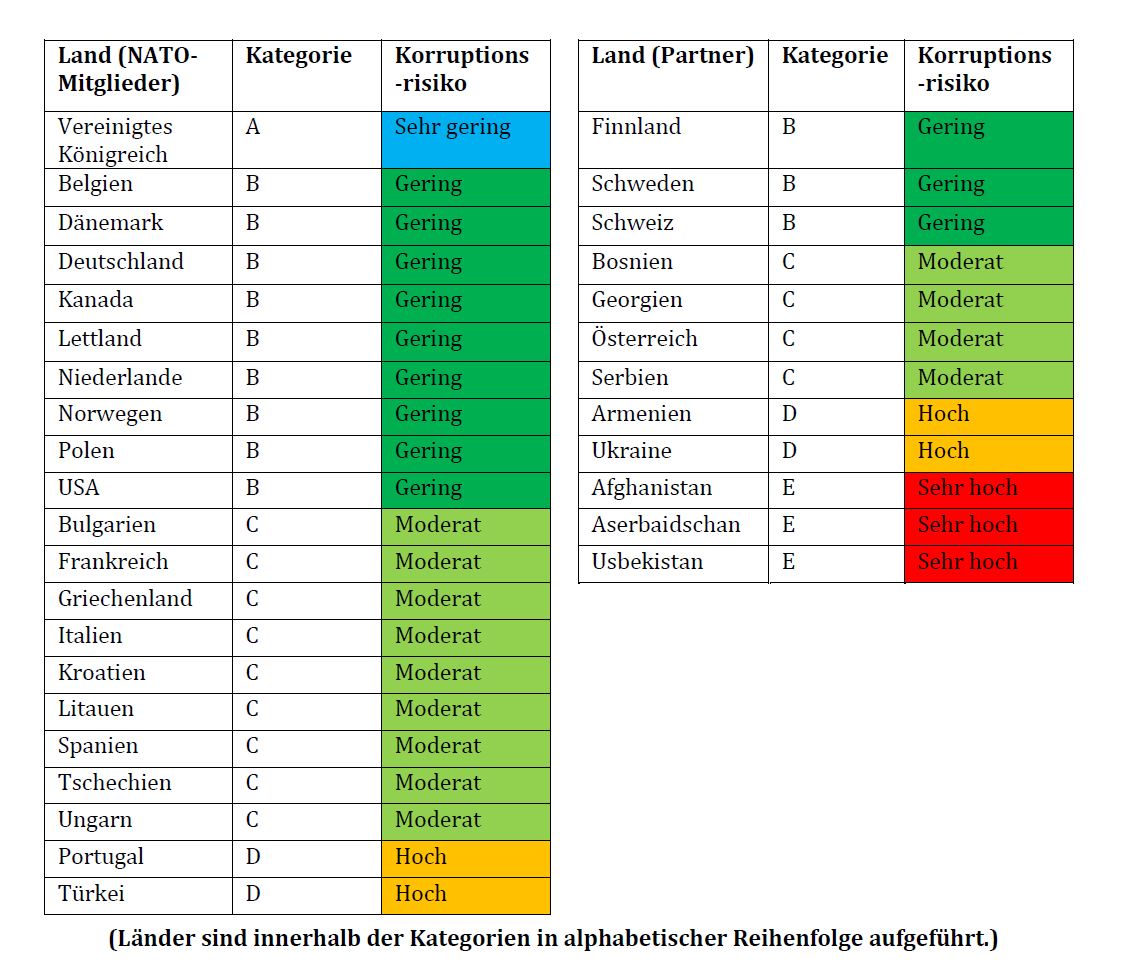Corruption risk in the army investigated
Switzerland has a solid system in place to prevent corruption in the area of national defense, but often lacks consistency. This is the conclusion of a study published on December 3 by Transparency International.

The results of 33 countries surveyed - NATO members and other European partners - show: The model boy is called Transparency International Great Britain, because only in this country is there a "very low" risk of corruption in national defense overall. In Switzerland, the risk of corruption is low (see rating), as the table shows. Switzerland, or rather Federal Councilor Ueli Maurer's military department, receives good marks in the areas of whistleblowing and procurement. Likewise, good marks are given for independent parliamentary control over the military and intelligence services. Nevertheless, Switzerland lacks the final consistency in some areas, which ultimately prevents the top rating, as Transparency International writes.
Defense budget not detailed
Commenting on Switzerland's score in the study, Katherine Dixon, director of Transparency International's Defence and Security Program, says: "Switzerland has solid anti-corruption mechanisms in the area of national defense. However, for it to achieve the top grade of A instead of the current B (see table), it would need to address some weaknesses.
According to Dixon, there is a need for action in the area of compensation transactions: the Federal Office of Armament, i.e. the Armasuissedoes not provide for any specific anti-corruption measures. Furthermore, improvements in the hiring process for middle and senior management would be desirable. Also surprising, he said, is that the publicly available defense budget is not very detailed compared to many other European countries. "Other areas that need improvement are the lack of a comprehensive anti-corruption strategy for this particular sector and especially for foreign missions. There is also a lack of an institution with sufficient resources to take the lead in risk analysis," Dixon added. "Even in areas where high marks are already achieved, such as procurement, top marks could be achieved with not too much additional effort."
The editors of SicherheitsForum confronted the Federal Department of Defense, Civil Protection and Sport (DDPS) with the results of the study. The inquiry was acknowledged in writing by the Maurer department with the terse sentence: "The DDPS has taken note of Transparency International's report."
Switzerland was not part of the pilot study in 2013, but because of its international role in the security and defense sector, it was examined in detail in 2015 with the participation of the DDPS. According to Transparency International, Swiss characteristics, such as the militia system, offer advantages in preventing and combating corruption, for example by creating greater transparency. But they also pose challenges: For example, DDPS employees may be associated with company representatives who may have a militia function in the Swiss army, the organization points out.
About the study
The Government Defence Anti-Corruption Index (GI) examines the existence, effectiveness and implementation of institutional and informal control mechanisms used to counter corruption risks in defense and security institutions. For this purpose, a group of experts from Transparency International collects information from numerous sources as well as through interviews in order to provide the government with a detailed assessment of the integrity of its defense institutions based on 77 indicators. (rs)
The details of the assessment of Switzerland are here to find.









